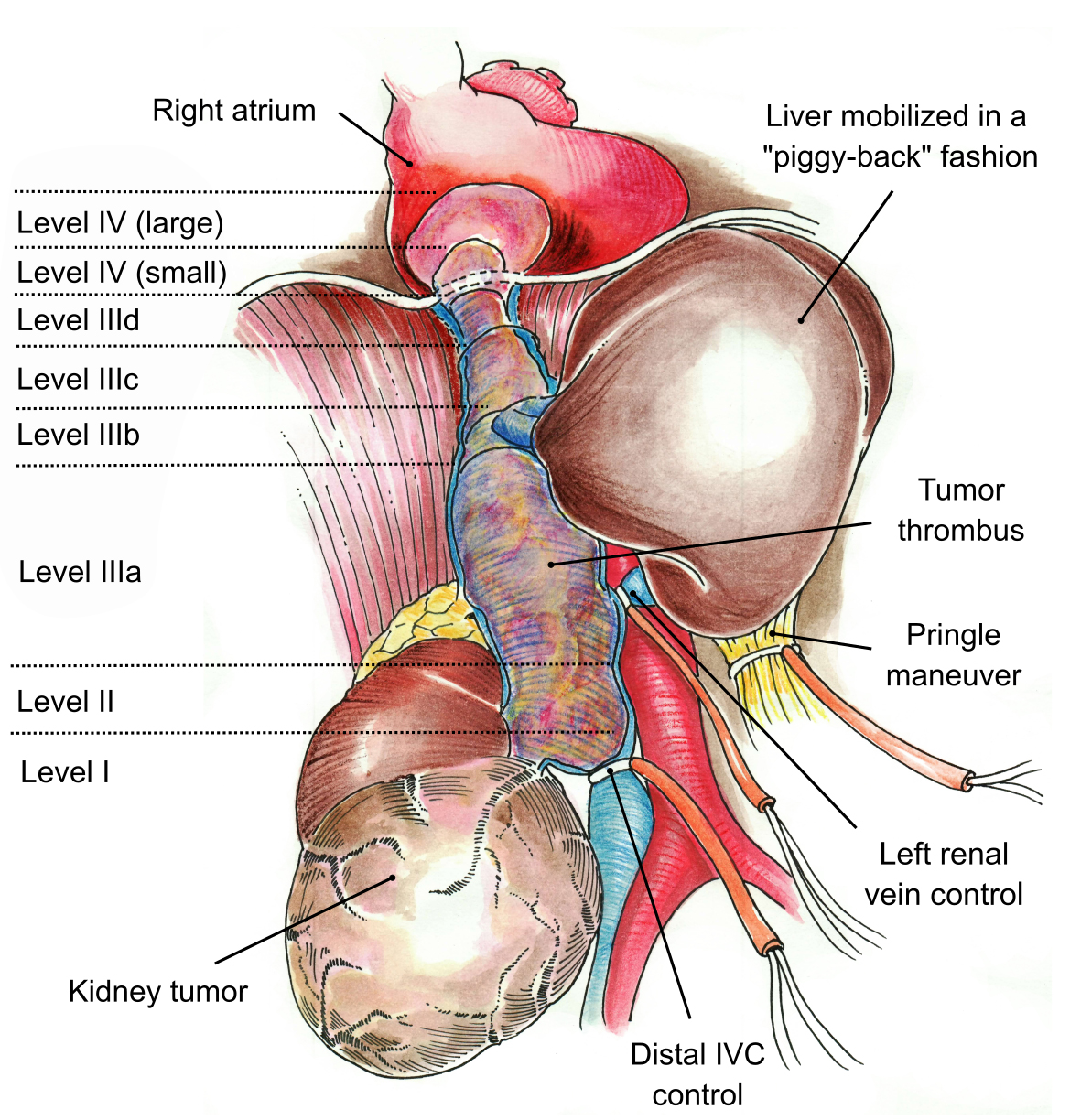Back
Poster, Podium & Video Sessions
Podium
PD56: Kidney Cancer: Localized: Surgical Therapy IV
PD56-08: En Bloc Resection of Right Renal Cell Carcinoma and Inferior Vena Cava with Tumor Thrombus: Is It Safe to Divide the Left Renal Vein?
Monday, May 16, 2022
10:40 AM – 10:50 AM
Location: Room 255
Laura Horodyski*, Miami, FL, Javier Gonzalez, Madrid, Spain, Marina Tabbara, Jeffrey Gaynor, Miami, FL, Maria Rodriguez-Cabero, Felipe Herranz-Amo, Carlos Hernández, Madrid, Spain, Rushi Shah, Gaetano Ciancio, Miami, FL
- LH
Laura Ann Horodyski, MD
Resident
Podium Presenter(s)
Introduction: When renal cell carcinoma extends into the inferior vena cava, obstruction leads to redistribution of venous flow through collaterals. A few case reports have found that resection of the obstructed inferior vena cava without reconstruction may be safe in the short term with regard to renal function, though a transient increase in creatinine can be seen. The objective was to assess whether resection of a right renal cell carcinoma and inferior vena cava with obstructing tumor thrombus is safe to perform without reconstructing the inferior vena cava with regard to long-term renal function.
Methods: A bi-institutional retrospective review was performed over an 18 year period, assessing patients with right renal cell carcinoma and obstructing level II-IV tumor thrombus.
Results: Twenty-two patients were included in the study. Average age was 62.5 (range 45-79) years old and 19 (86%) of the patients were male. One patient (5%) had a level II thrombus, 14 patients (64%) had a level III thrombus (IIIa n=3, IIIb n=6, IIIc n= 3, IIId n=2), and seven patients (32%) had a level IV thrombus. Intra-operatively, average estimated blood loss was 1.35 (range 0.2 – 25) L. The average length of hospital stay was 11 (range 5 – 50) days. Average preoperative creatinine was 1.20 (range 0.40 – 2.70) mg/dL and postoperatively, average creatinine was 1.3 (range 0.86 – 2.20) mg/dL. Mean creatinine at 6 month and 12 month follow-up was 1.10 (range 0.5 – 1.6) and mg/dL 1.34 (range 0.6 – 2.0), respectively. Eight patients were lost to follow-up, and two died (one in the hospital, and the other three months post-operatively).
Conclusions: Resection of right renal cell carcinoma with inferior vena cava in the presence of an obstructing level II- IV tumor thrombus without reconstruction of the inferior vena cava appears not to have a significant adverse effect on long-term renal function.
Source of Funding: n/a

Methods: A bi-institutional retrospective review was performed over an 18 year period, assessing patients with right renal cell carcinoma and obstructing level II-IV tumor thrombus.
Results: Twenty-two patients were included in the study. Average age was 62.5 (range 45-79) years old and 19 (86%) of the patients were male. One patient (5%) had a level II thrombus, 14 patients (64%) had a level III thrombus (IIIa n=3, IIIb n=6, IIIc n= 3, IIId n=2), and seven patients (32%) had a level IV thrombus. Intra-operatively, average estimated blood loss was 1.35 (range 0.2 – 25) L. The average length of hospital stay was 11 (range 5 – 50) days. Average preoperative creatinine was 1.20 (range 0.40 – 2.70) mg/dL and postoperatively, average creatinine was 1.3 (range 0.86 – 2.20) mg/dL. Mean creatinine at 6 month and 12 month follow-up was 1.10 (range 0.5 – 1.6) and mg/dL 1.34 (range 0.6 – 2.0), respectively. Eight patients were lost to follow-up, and two died (one in the hospital, and the other three months post-operatively).
Conclusions: Resection of right renal cell carcinoma with inferior vena cava in the presence of an obstructing level II- IV tumor thrombus without reconstruction of the inferior vena cava appears not to have a significant adverse effect on long-term renal function.
Source of Funding: n/a


.jpg)
.jpg)